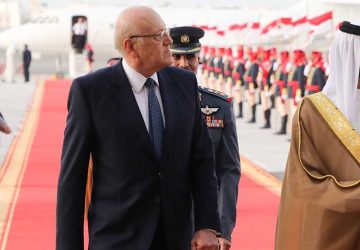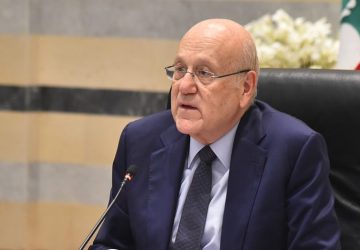Listen to the article
Following the adoption of fourteen laws during the Parliament sessions on December 14 and 15 and the decision of the Council of Ministers, during its session on December 19, to issue these laws in the name of the President of the Republic, caretaker Prime Minister Najib Mikati signed only eleven laws, deciding not to publish three others, namely:
- The law amending certain provisions of laws related to the administration of private schools and the regulation of school fees.
- The law aimed at providing financial assistance to the compensation fund for members of the teaching staff of private schools.
- The law amending the law on rents for non-residential properties.
This decision aims to submit the question again to the first session of the Council of Ministers in order to examine the available constitutional options. The government will then decide if these laws are to be referred back to Parliament for reconsideration.
The union of owners of buildings and leased properties in Lebanon is preparing to file a complaint with the Council of State against the interim government and its Prime Minister Najib Mikati. According to the union, they committed a serious constitutional violation by using the veto power, which is supposed to be exclusive to the President of the Republic. They also canceled the decision to issue all the laws sent back to the government by Parliament, including the rent law.
Mikati’s choice sparked a constitutional debate in the country as an unprecedented decision, and the property owners’ union expressed dissatisfaction with this measure, considering it unfair to the property owners.
The law rejected by Mikati had been adopted during the last legislative session and provided for a gradual liberalization of non-residential rents over a period of 4 years for 25,900 units used for purposes other than residential. During this period, the compensation amount equaled 8% of the rental value, with the tenant paying 25% in the first year, 50% in the second year, and 100% in the third and fourth years. According to the law, the owner can shorten the transitional period to two years by waiving progressive increases or by recovering the lease before the end of the period under certain conditions, with compensation of up to 15% of the fair market value of the leased property.
This law had already gone through the process of the Administration, Justice, Finance and Budget committees and was approved by the General Assembly of Parliament during the last legislative session.
Commercial committees opposed the law, especially in the current difficult economic context, and visited deputies to explain their position. The property owners’ union welcomed the adoption of the law, which frees contracts concluded 40 years ago.
They asked: How will the new tenant pay new rents, especially since the number of new leased sections is 87,000? Why do merchants set their prices based on the cash dollar or exchange rate and pay the rent according to the old rate? They also refused to continue collecting indemnities of 2, 3 and 4 dollars per month.
Patrick Rizkallah, the president of the property owners’ union, considers, in an interview with This Is Beirut, that the Prime Minister’s decision is biased, unreasonable and contrary to the Constitution. He calls on Parliament to re-adopt the law to complete the legislative process of releasing non-residential rents and end the injustice to property owners pending the decision of the Council of State.
This legislative process seems to be taking place for the first time in Lebanon, but as usual, the Lebanese state approves nothing correctly and flawlessly. All decisions are made confusingly, unclearly, and are subject to dispute, leading to conflicts between parties in the total absence of the state.





